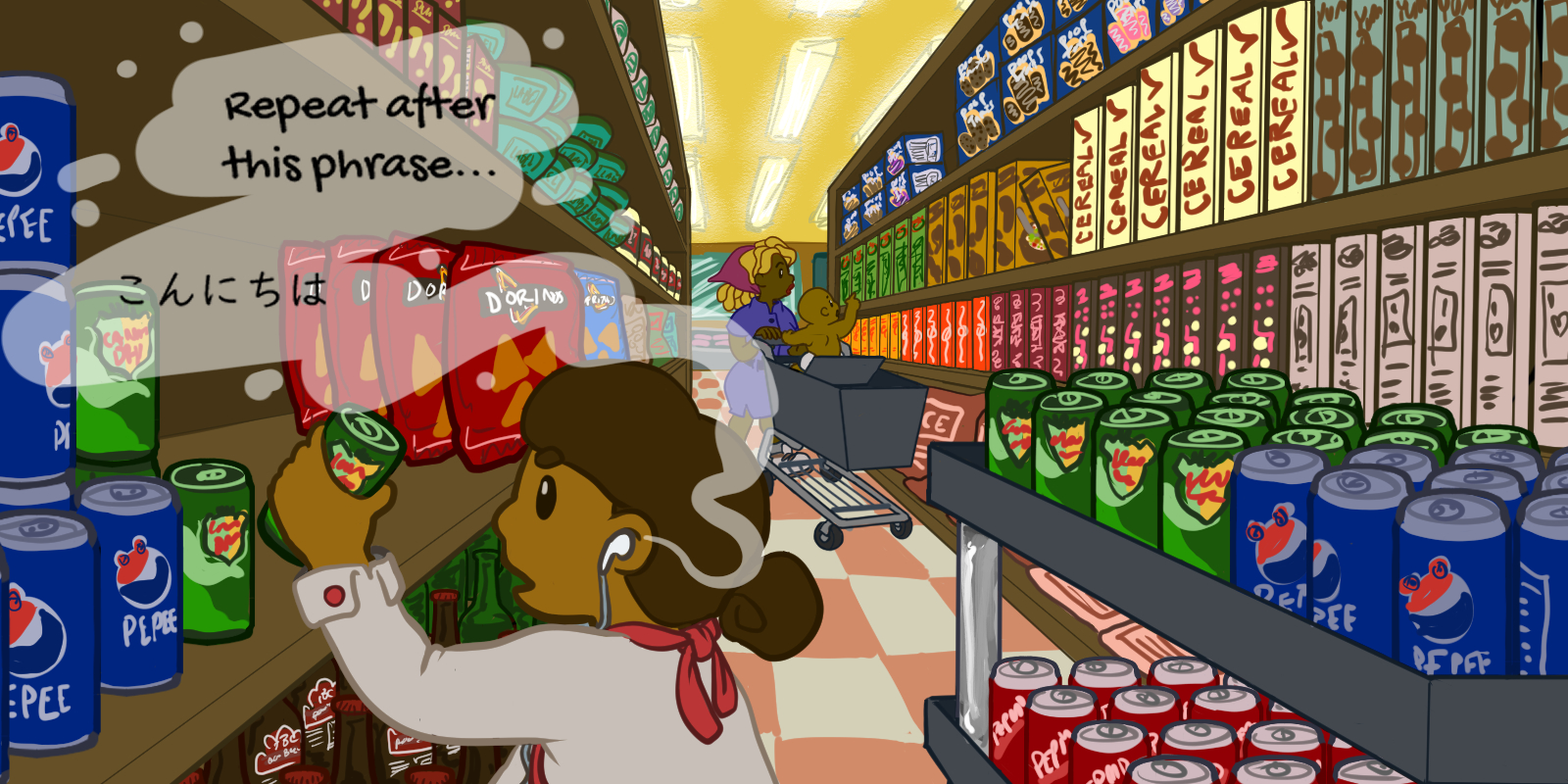How to start learning Japanese, simplified Sometimes getting started learning feels like a miraculous feat. Just keep your cool, and remember to take it one step at a time!
This insight was originally published on January 04, 2021, and transferred here later.
Learning is hard; and that is okay, man!
It is easy to get rapt up in the minutia of possibilities while learning the Japanese language. There is a lot to learn, many reasons guiding your motivation to learn, and a continual reduction of time in your lifespan to master it all (or "getting by with it" if mastery isn't quite your thing). With that, things like choice paralysis and overwhelmed-ness can get to any of us; and when you're just starting to learn the Japanese language, it can all feel like a huge barrier to getting any learning done at all. But this is a totally normal, irrational, "flustrating" part of being a person. It sucks!
Positive newsflash though-- It doesn't really matter!

Now hold up! You might be thinking this is one of those hip, nihilistic cop-outs to avoid dealing with your scholarly concerns. If so, you're wrong. Straight-up~
What I mean by "it doesn't really matter" is that unless you are taking a graded course in Japanese, or you prematurely signed up for a JLPT exam, then the specifics of what you learn, when you learn it, and how many things you learn at a time doesn't really matter. (Also, this specific blog post is probably not useful for you since you are explicitly doing those things and have an actual guiding post to work with.)
What actually matters is that you are making learning happen at all! So worrying about all the fine details, shoulds, and should-nots is more of a distraction to your Japanese learning experience than it is a help right now. It is a red herring, and nobody likes a red herring!
 <
<It's the little things that matter most
Now that you've taken a moment to toss aside all the distracting over-thinking you've done, let's talk about focusing on what can help you start your Japanese learning adventure: portion control~!
Just like you might sometimes feel when you eat too much and too fast, your brain also isn't very happy when you shove too much information down its learn-hole.
Breaking down your learning goals into small manageable pieces will help you better focus on what you are learning; and allow you time to better appreciate and digest that new information. Start out with something small. Pick a single, small goal that you can easily say is completed or not, and focus all of your learning attention towards that one small thing:
- A tiny, figurative, baby-sized hand full of new words or simple phrases
- A grammar rule
- The sounds or letters used in the language
- Whatever! Pick something small, complete-able, and interesting to you~
Think to yourself "If I survive the year, what tiny thing would I have been proud of myself that I was able to learn and do?"; and then when it is over, you can celebrate that success! ~ Be proud!

Why does that work?
When you pick a small goal to focus on, it gives you a manageable amount of information to work with and think about. It gives you a measurable goal to mark as completed or not. Essentially, it is like making a learning to-do list for yourself that you can have the joy of recognizing your own progress with as you go. When you finally do complete your 1 small goal, then you can allow yourself to start a new small goal! But in this moment now, you only focus on this first goal until you feel confident enough that you are ready to try learning something new. ~That's it!
A word on picking the right learning material
So one cool thing about learning the Japanese language is that there is no shortage of resources to learn from! It is a very popular language for many different people and reasons. If you open your preferred search engine, the results will not be anywhere near empty when looking for learning material about Japanese.

Because of that, it might feel daunting to pick the perfect learning resource out of a gazillion options. But again, it doesn't help to worry too much about that kind of restricting minutia! Just pick one-- maybe it is the first thing you find relating to your chosen learning goal, or perhaps something someone recommended in a blog post. Try that thing out for a little bit.
If one resource doesn't work out for you, then don't feel like you have to stick with it to the bitter end. Find a better one that suits you! Just like picking the small goal we talked about earlier, you can pick, try, learn from, and move on from the tools you use. This is for your own personal growth, and you would be doing yourself a disservice by continuing something that you have learned isn't working!
If it helps you feel any better, for example, then you have my explicit permission to "stop using INSERT LEARNING RESOURCE NAME HERE™, and try making your own hand-held flashcards instead".
Finding the time
After you've figured out what you want to focus on learning, and found a resource or two to learn from, then you just have to spend some time doing the learning action.
In an ideal world, you should dedicate time for learning on a regular schedule as often as possible, but this world is far from ideal. Sometimes you only have one small burst of time to learn some of the time, and that is okay-- It isn't a death sentence for learning Japanese!

Much like what and how much you need to successfully learn, it doesn't have to matter exactly when and how often you learn; what matters most is that you dedicate some kind of time to learn.
If that means you can only practice your flashcards during your bus commute on Thursdays, then take that win! If it means you can only discreetly listen to a podcast while taking inventory at work, do what you feel you can get away with! If you have the time, take advantage of it so that you feel you are making some kind of progress. Even if it is only enough time to fit the practice of a single word in a day for 1 minute, you've still managed to learn one more word than you did a minute before then.
Fact: A small victory is still a victory, and you should bask in that success! Me, just now
Now go out and learn. Be free~!
Once you've planned that small and measurable learning goal for yourself, and found a workable nugget of time to practice that goal, keep doing that until you feel confident that you've learned it. Once you feel okay with your progress, then you can rinse and repeat that process with a new learning goal.
It isn't the most structured approach to learning by any means, and you will probably not become a Japanese language savant by doing it. It does, however, give you an easy process to follow that can help you focus on learning with a little less stress than if you just decided to "wing it" or worry about all of the logistics involved in a lesson plan.
So go out; go learn; and don't let worrying about what, how much, and how often you think you should learn stop you from actually learning!
Peace out~
